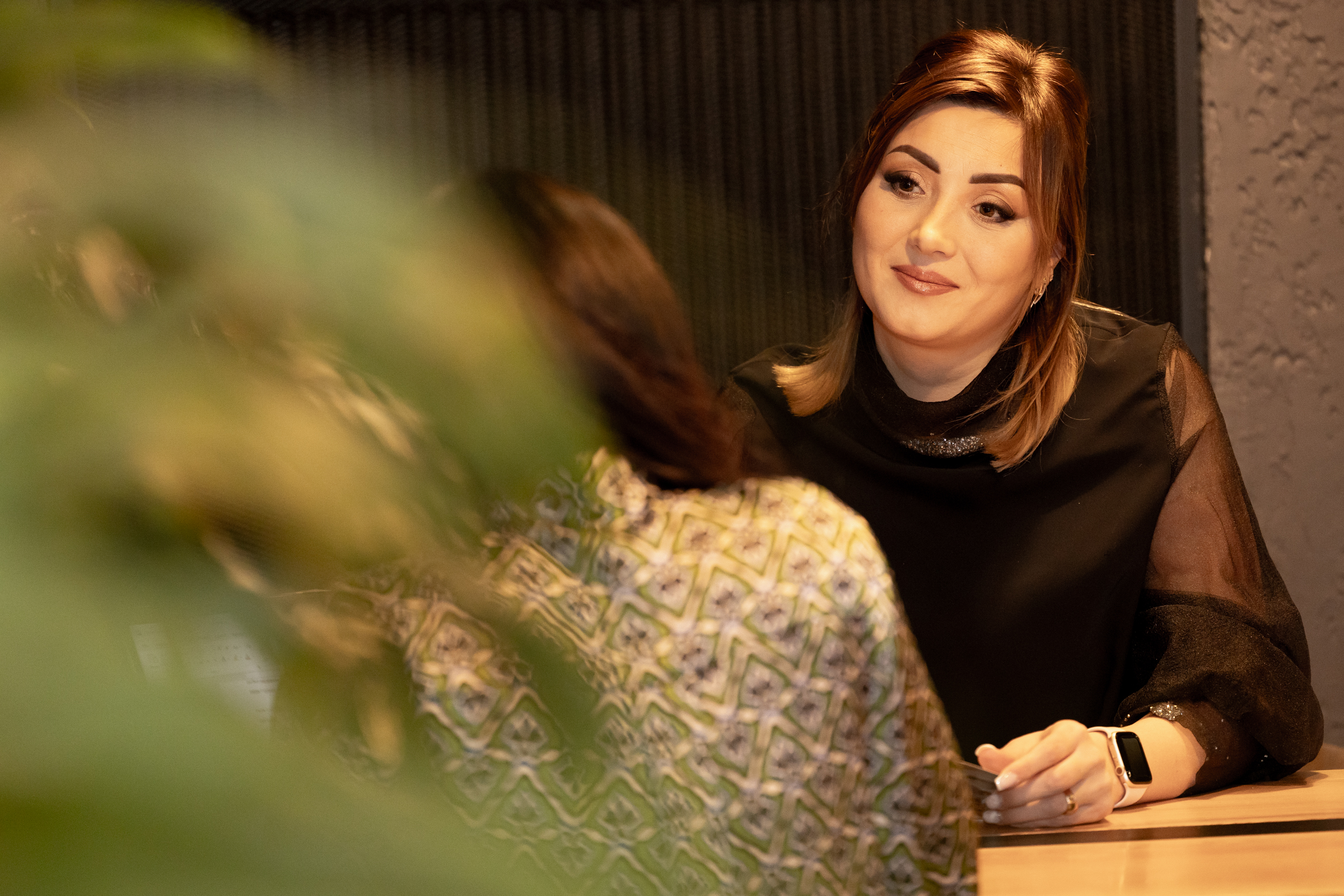Victoria Bordea from Chișinău will never forget that day in her life. It was the day when, with tears in her eyes, she left her three-year-old daughter in the care of a friend and went to the hospital for an intervention to treat a precancerous lesion of the cervix.
She never believed that something like this could happen to her. She knew about the preventive pap smear test for cervical cancer, but why should she take it? She had never experienced any symptoms. She could think of anything but a precancerous lesion.
Mother from Italy convinced her to take the test
After three years of childcare leave, her daughter Valentina started kindergarten, and Victoria returned to work. She works at a hairdressing salon in Chișinău, surrounded mostly by women.
"I remember they were talking about the pap test, that their family doctor had called them and invited them to take the test. I think that's when I first thought that maybe I should take this test too", Victoria recalls.
However, she continued to postpone it day by day because she felt fine, perfectly healthy, until a conversation with her mother, who lives in Italy, finally convinced her. She had to take the paptest because it is recommended to be done after the age of 25, and she was 30 and had never done it.
So, she went to the family doctor at the local clinic, where she underwent that simple and painless procedure taking just a few minutes. Victoria returned to work and her usual routine.
"I didn't think it could be anything bad"
However, a week later, a call from the family doctor alarmed her, inviting her for a repeated test because the results were not good.
"I didn't think it could be anything bad because I still had no symptoms. I thought it was a mistake and it would be resolved".
However, the repeated test indicated the presence of HPV infection and some abnormal cells in the cervix.
It was only then that Victoria understood how serious it was and how important and decisive the moment was when she went to the family doctor to take the cytological test.

The road to recovery
What followed was a challenging but hopeful and optimistic period.
She was scheduled for a consultation at the Colposcopy Reference Center within the Mother and Child Institute, where she underwent several colposcopic diagnostic and treatment investigations. The person who encouraged her the most and stood by her during this time was her gynecologist, Diana Valuță, Head of the Cervical Cancer Screening Implementation Coordination Unit. Together, they achieved success in treatment.
"I still remember. It was exactly on Good Friday when Mrs. Diana called me and congratulated me. She told me that I didn't need to do anything else, that I didn't have cancer, and from now on, I should enjoy life more and take better care of my health".
"I came home then, hugged my daughter, and told her that we did it, that we are the strongest. I learned my lesson because if I had delayed it any longer, it could have been too late. I hope other women learn from my experience and go to the doctor!"
Authorities and international organizations urge women to prioritize their health
Victoria is one of the fortunate women who, thanks to the national implementation of cervical cancer screening, managed to prevent cervical cancer. More and more women are succeeding in this in Moldova, with the coverage rate for cervical cancer screening services for women aged 25-61 doubling in recent years, from 36% in 2021 to 62% in 2023, according to data from the Cervical Cancer Screening Implementation Coordination Unit.
However, many women still reach the doctor too late, and about 300 women die annually from this cause. They leave behind grieving families and young children, because most women affected by cervical cancer are young and of reproductive age.

The Ministry of Health, the United Nations Population Fund (UNFPA), and the World Health Organization urge all women to confidently use cervical cancer prevention services, including HPV infection vaccination and cytological testing once every three years, between the ages of 25 and 61, with their family doctor. These measures ensure maximum protection against cervical cancer and increase the chance of a healthy life.


